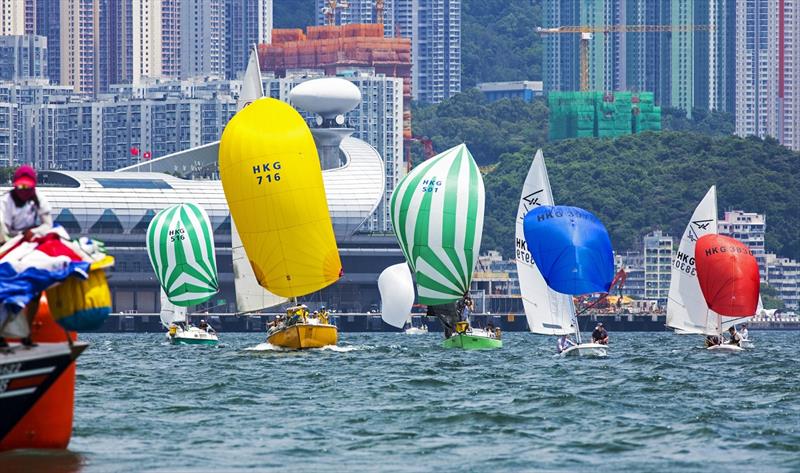
Royal Hong Kong Yacht Club discusses keys to clean regatta success
by Paige Myatt 17 Nov 2020 17:26 AEDT

Clean Regattas © Vivian Ngan
This year has certainly disrupted many events, including Clean Regattas around the world. We were able to catch up with an experienced Clean Regattas organizer, Ailsa Angus, who is the Sailing Manager for the Royal Hong Kong Yacht Club (RHKYC). She has been met with "only positive support" for the club's green initiatives and has set an impressive standard for getting big impact ideas off the ground. Since 2016, RHKYC has worked their way up from Bronze, to Silver, and now hosts a majority of Gold level Clean Regattas, with a total of 14 events certified over the past four years. We are excited to share some insight into their success.
Paige Myatt: Why are you passionate about protecting the marine environment?
Ailsa Angus: The sea may be our venue to host the sports we love, but more importantly, it is a source of life and sustenance on our planet. It is home to creatures and critical systems of nature that depend on us not to destroy it. As participants of watersports, we all have an enhanced relationship with the sea, and the first step in nurturing this relationship is to acknowledge it. Our sports and our club give us a powerful platform to invite others to acknowledge this relationship. It is our duty to utilize this platform to reach not only our club members and guests, but to build awareness among our entire community so everyone can acknowledge and help protect the sea.
PM: What are some of the biggest successes you have had in terms of making your regattas more sustainable?
AA: Our club first started with Clean Regattas back in 2016, and one of our first major efforts came from our youth sailors during Hong Kong Race Week in 2018. They were the first to commit to running a Clean Regatta. Since then, we've focused on bringing our primary location on the Hong Kong harbor front up to speed - it was easy to say no to plastic straws and single-use containers in the bistro, but loss of revenue from selling single-use water bottles was a burden the club had to shoulder.
One of the biggest challenges we took on recently was the proper disposal of recyclables post-regatta. Our recycling receptacles, while available, were easy to miss and somewhat small - our sailors, rowers, and paddlers need a lot of provisions to fuel a race, and if they miss the recycling containers, it's straight to a landfill with otherwise recyclable empties. We made two key efforts to address this: first, through the installment of larger, more obvious recycling stations at our pontoons, and second, through the establishment of our Green Team which includes representatives from every sailing class, rowers, and paddlers.
Regatta competitors can now see where their recyclables must go and hear from the Green Team on how to do it right. We've now noticed a much-needed increase in both recycling participation and quality of sorting post-regatta.
PM: Have any of these changes carried over to different events or become permanent changes at the club?
AA: Establishing our Green Team has given our members who are interested in sustainability a chance to take leadership among their sailing classes, rowers and paddlers. We are hoping to formalize Green Team roles into the committees who support and drive activities for these groups to encourage permanent focus on sustainable watersport.
PM: How has COVID impacted your ability to host Clean Regattas?
AA: In June, the RHKYC was asked by HK Government to stop all of our sports for 2 months, therefore some of our races such as Autumn Regatta were postponed for a while.
PM: What new sustainability initiatives do you want to achieve in the future?
AA: We are now working on increasing awareness of marine life near our facilities and are hoping to launch an ecology project in the coming year.
PM: Do you have advice for other Clean Regatta organizers?
AA: Education and repetition is key. We are learning that people generally do want to help protect the marine environment rather than hurt it, but are often not aware of the impact of their actions or the details necessary to get things like recycling right. Patience is also important as it takes time to change and learn new behaviors.
Find out more about the RHKYC's sustainability initiatives here.